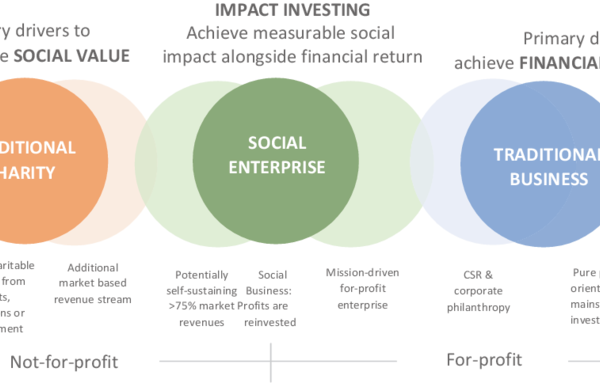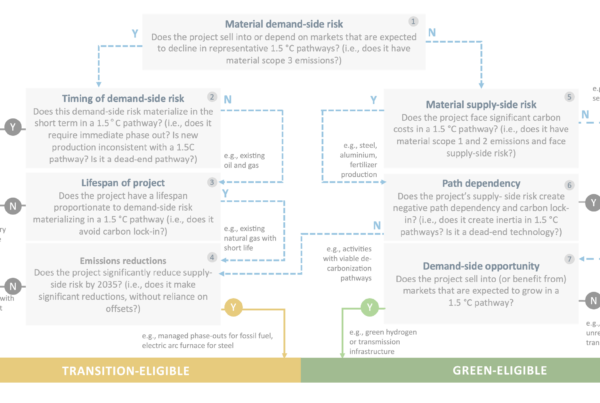Future-Proofing Canada’s SMEs: 2025’s Blueprint for Purpose-Driven Growth and Measurable Impact
Canada’s small and medium businesses are on the brink of a pivotal year, where purpose and profit converge like never before. In 2025, sustainability isn’t just an expectation—it’s a necessity, and consumers, investors, and employees are demanding real impact. This isn’t about following trends; it’s about shaping the future. The SMEs that thrive will be the ones who commit to real social impact, measure their footprint, and engage purpose as a core growth driver. Here’s your roadmap to lead, not just survive, in a marketplace where values and value creation are inseparable.
1. Sustainability as Non-negotiable: Turning Compliance into Competitive Edge
Environmental responsibility is more than a checkbox; it’s a baseline expectation in 2025. Tightening Canadian regulations and conscious consumer demand are making sustainability a must-have. For SMEs, this is not just a compliance task—it’s a competitive weapon.
Actionable Advantage:
- Set the Standard, Don’t Just Meet It: Go beyond compliance with visible, bold environmental commitments that differentiate your brand.
- Certify and Verify: Certification matters. B Corp, LEED, and Green Business Bureau logos speak volumes, immediately signaling your business’s commitment to sustainability.
- Circular Economy Practices: Reimagine products for durability and reuse. Waste reduction is no longer an option; it’s a direct path to loyalty and market trust.
2. Purpose as a Driver of Profit: Building Brands with Meaning
Purpose is the new metric of success. In 2025, consumers demand not just transparency but authentic, embedded values. SMEs that define and demonstrate a strong, socially-aligned mission will gain the loyalty of both customers and employees.
Actionable Advantage:
- Lead with Purpose: Articulate and communicate what your brand stands for, then back it up with action. A clear, purpose-driven mission resonates deeply with conscious consumers.
- Purpose Across Every Touchpoint: From supply chain ethics to customer interactions, let purpose guide every business decision.
- Share Real Stories: Consumers are calling out inauthentic claims. Share raw, data-backed stories of your impact to connect authentically with your audience.
3. Tech for Good: Leveraging AI and Automation to Amplify Impact
AI and tech aren’t just tools—they’re transformative, accessible levers for SMEs to drive social and environmental goals. SMEs can now monitor their environmental impact, automate for efficiency, and make real-time data-driven decisions that deliver measurable social good.
Actionable Advantage:
- Automate Impact Reporting: Use AI to track and report environmental and social metrics with precision, simplifying regulatory compliance and freeing up resources.
- Transparency through Technology: Blockchain and tracking tools enable SMEs to prove their sourcing claims, building instant consumer trust.
- Sustainability in Operations: Adopt predictive analytics to cut waste and streamline your supply chain, directly impacting your bottom line and environmental footprint.
4. Impact Investing: Unlocking Capital for Social Enterprises
The flow of capital into ESG-focused enterprises is accelerating. In 2025, impact investors are zeroing in on SMEs with measurable social impact, particularly those able to articulate strong ESG (Environmental, Social, Governance) practices.
Actionable Advantage:
- Invest in Your ESG Framework: Align your operations with top ESG practices to attract investor interest and new, purpose-driven customers.
- Position for Investment Readiness: Access impact funding by structuring your social and environmental initiatives with clarity and transparency.
- Strategic Partnerships: Collaborate with other impact-driven businesses to expand reach and influence, creating a network effect that strengthens your appeal to investors.
5. Employee Activism and Purposeful Talent Attraction
Purpose-driven work culture is now non-negotiable. With employees, especially younger ones, prioritizing values alignment, SMEs that actively foster these values will attract and retain the best talent. Work culture is now one of the strongest brand assets.
Actionable Advantage:
- Infuse Purpose into Workplace Culture: Prioritize flexible, inclusive policies, and ensure every team member feels connected to the company’s purpose.
- Employee-Led Social Initiatives: Enable employees to participate in social impact efforts, allowing them to take ownership of their contribution to the brand.
- Meaningful Engagement: Move beyond surface-level perks. Give your team the opportunity to lead and engage in social impact projects, creating a workplace where purpose and productivity thrive.
6. Community-Centric Models: Growing Market Presence Through Local Impact
In 2025, consumers are increasingly valuing local connections. SMEs that establish strong, community-focused business models will not only build loyalty but will also ensure resilience against supply chain disruptions.
Actionable Advantage:
- Local Sourcing as a Brand Differentiator: Embrace local suppliers, reduce dependencies, and market your community impact to consumers who want to support homegrown businesses.
- Deepen Community Ties: Sponsor regional events, create partnerships, and engage with initiatives that align with your values to build a local, loyal following.
- Commit Tangibly: Make community support a core business priority to win the trust and admiration of your local market.
A Final Word
2025 is the year for Canadian SMEs to double down on purpose, sustainability, and community. Those that seize these trends with authenticity and vigor will not only weather the competitive landscape but will emerge as leaders in a purpose-driven economy. Now is the time to act boldly, embracing these shifts to build a resilient, impactful business for the future.



